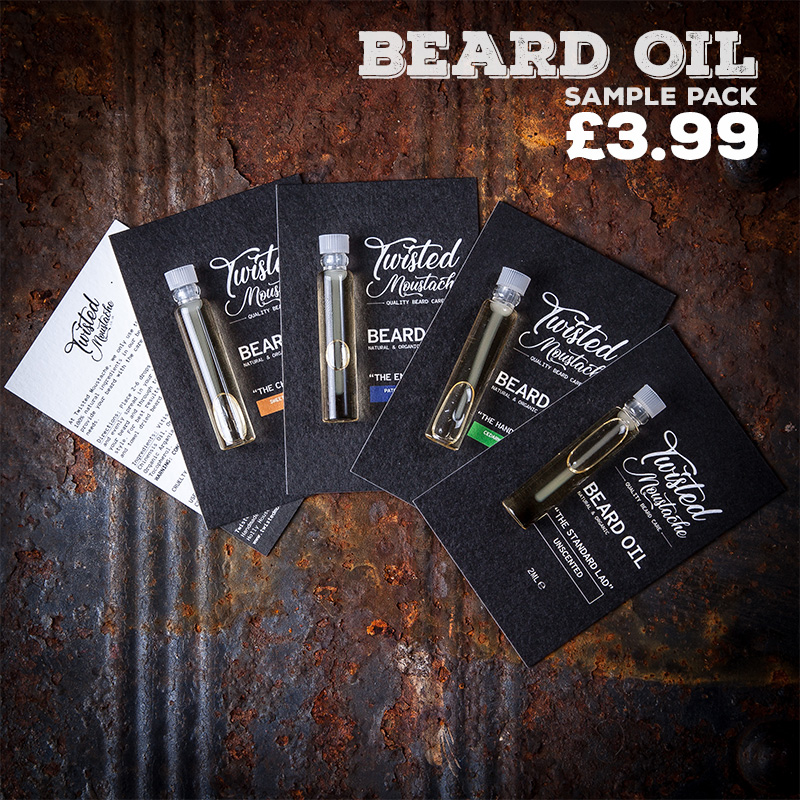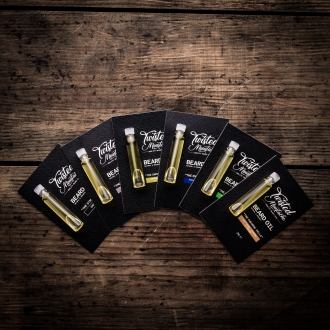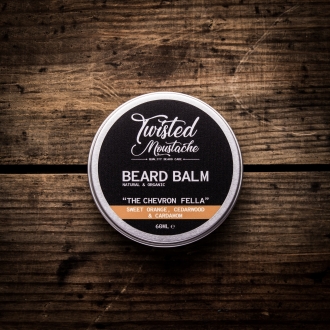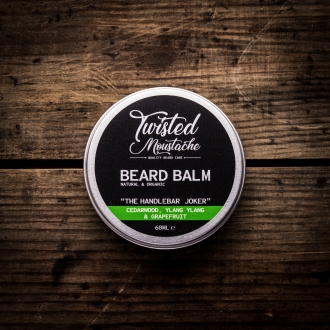The Impact of Facial Hair on Political Image and Perception
By Jack Shaw (Guest Post) | Last updated 30th October 2023
Alberto Korda, Public domain, via Wikimedia Commons
Imagine you’ve declared your candidacy for office. You get up on the stage to make your first speech, marking your first public appearance before the crowd. The ladies and gents in the audience will judge you based on what you say and how you look. You want to impress the crowd with your stunning good looks, but one factor will measure above all — your facial hair.
Facial hair has been divisive in politics for a long time. Men running for office typically don’t grow facial hair unless they’re angling for a particular persona. However, you can make it work if you do it correctly. Why does facial hair impact politics so much? Let’s talk about beards, moustaches and mutton chops and how they affect your political perception.
How Does Facial Hair Affect Political Image?
Take a time machine back to 17th-century Russia. You’re walking down the street in Moscow, and a police officer suddenly stops you. The officer demands you pay the newly created beard tax, threatening to shave your beard if you don’t comply. You reluctantly pay the fine and keep moving. Now, you become scared to leave your house because you’re afraid of beard persecution.
In the late 17th century, Peter the Great enacted a beard tax to westernize his Russian empire. Many subjects disliked the decision because beards were a part of Russian Orthodox culture. In fact, men who walked around in public with a clean-shaven face risked being called them blasphemous.
You can’t simply tell your beard to stop growing. Facial hair has always been a part of human culture, providing us warmth and protection for thousands of years. So, why do beards have a stigma in politics — sometimes positive, sometimes negative?
Facial hair has a tricky history — especially in the last century. The rise of television in the mid-20th century has made politicians more mindful of their appearance. While you want to look your best during campaign events, you must look fresh and clean on TV screens. Millions of adults and children are critiquing your appearance, and facial hair leaves more for the critics to harp on.
For instance, look at the 1960 presidential election in the U.S. In the fall of 1960, Senator John F. Kennedy and Vice President Richard Nixon debated in Chicago on September 26. Americans watched a debate on TV for the first time and disliked Nixon’s appearance. Nixon shaved that day, but his refusal to wear makeup revealed his stubble. On the other side, Kennedy’s clean face and confident delivery wooed voters.
Kennedy ultimately won the 1960 election with a narrow victory. Did Nixon’s stubble affect his chances of winning? It’s hard to pinpoint Nixon’s election solely based on his debate appearance and performance. However, historians have considered that night in Chicago as a turning point in the 1960 campaign cycle.
Why Do Some Politicians Grow Facial Hair?

Лев Давидович Троцкий (1879-1940), Public domain, via Wikimedia Commons
Beards and moustaches may be taboo in some political circles, but they’re prominent in various cultures worldwide. In fact, many Western countries like the United Kingdom have undergone phases where each new leader sported facial hair. Here are four reasons why you’ll see politicians wear facial hair.
Projecting an Image
When you see a man with a beard, what do you think? Some people see beards and think of strength and masculinity. Our beard growth comes from our diet, testosterone levels and genetics. So, seeing a strong beard can project equally healthy bodies and energy.
While facial hair symbolizes strength, it can also represent wisdom. Beards and moustaches make us appear older than we actually are, creating the appearance we are seasoned with life and ready for political office.
Connecting to the People
You can spend millions of dollars on your campaign, focus groups, TV advertisements and more. In 2019, U.K. Conservatives spent over £16m to win their parliamentary majority. However, the votes are up to the people. You may live in a beard-friendly area, so it’s your job to unleash your facial hair.
Facial hair has dwindled recently, so we see fewer bearded political figures in the news and at campaign events. Growing a beard helps some candidates carve a niche for themselves on the campaign trail. Letting your facial hair grow out for a few weeks makes you look more relatable to the small business owners or store clerks you see daily.
Religious Reasons
Beards may be less common in the U.K., but other countries have a much different perspective on facial hair. For example, traveling to an Islamic country will feature beards across the government. Many Muslims believe shaving your beard is unlawful. You also see beard traditions in Sikhism, Mandaeanism and other prominent faiths.
Charity
November is one of our favorite months of the year. For these 30 days, we celebrate men’s health and pay special attention to those with prostate cancer and other debilitating diseases. How do we pay homage to these men? By growing the most enormous beard we can for the whole month. Politicians also get in the action during the month by letting their facial hair grow. They may do it for charity and show their support for men worldwide.
Why Do Some Politicians Opt for Shaves?
We’d love to see more beards in politics, but most politicians have clean-shaven faces. Why do many stay away from beards? Here are four reasons why.
Looking Clean
Politics is all about perception — just ask Nixon. You want to come across as a nice, family-friendly figure to dads, moms and children across the country, so you want to look as buttoned-up and tidy as possible. Men wanting to clean up typically start with their facial hair. If you shave for weddings, funerals and first dates, you may as well use the same approach with campaigns.
Military Service
Guys who grew up in and around the military know beard culture isn’t prominent in the armed forces. For instance, the British army forbids beards unless you are a pioneer sergeant. The U.S. and others also enforce beard restrictions for hygiene and security reasons.
Many politicians come from military backgrounds — whether they served or their parents did. They’ve spent their entire lives seeing clean-shaven faces and kept this mantra throughout their professional careers.
Young Appearances
Politicians tend to be on the older side. Parliamentary data shows the average MP is about 51 years old. Growing a beard makes you look older, but that might not be the goal for many politicians. More senior government officials may shave their faces to look younger. If you want to connect with young voters, shaving your face may be what the doctor orders.
Going International
Working in politics means working with local and international leaders. Imagine you and a few other government officials plan to meet with representatives from another country. This meeting requires everyone to be on their best behavior and look like professionals. You want your guests to think highly of you, so your aides may recommend shaving.
What Do Politicians Need for Beard Maintenance?
You’ve decided to hit the campaign trail and spread your wondrous ideas. While on the go, you won’t have as much time for beard maintenance, so you need to take the show on the road. Here are four things you need for beard maintenance as a politician.
Shampoo
The first thing you need is beard shampoo. On the campaign trail, you’ll come across many friendly faces. Unfortunately, not everyone keeps up their hygiene. You’ll get up close and personal with people who may transmit bacteria from their hands to yours. Now, imagine you touch your beard with the same hands.
You need beard shampoo daily to clean your beard after politicking. Our favorite is the cocoa beard shampoo with sweet orange and cedarwood cardamom aromas. You’ll feel and smell better no matter where you go.
Trimmer
We encourage you to grow your facial hair, but every beard has its limits before it starts looking unkempt. After a week or two on the trail, you’ll likely need a trim. Bring a razor or a trimmer in your suitcase and ensure your beard looks its best for any public or private gathering. Some people you meet will like beards, whereas others might not. Err on the side of caution and keep it clean.
Beard Oil
Politicians are on the road for weeks or months with little time at home. You’ll be outside knocking on doors for much of the campaign, eating tasty food and giving speeches. The sun will shine on your beard for many hours of the day, emphasizing the need for beard oil. This product keeps your beard soft and moisturized and reduces itchiness. Beard oil will help those long days be more comfortable.
Wax
Do you have a unique beard or moustache style? You need beard wax. This product helps keep your beard or moustache in place. The last thing you need is drooping facial hair on the campaign trail. We’re partial to the Chevron Fella Stache Wax because it keeps your upper lip hair looking as strong as your campaign speeches all day long.
Famous Facial Hair Throughout History
Beards aren’t as commonplace nowadays, but plenty of political figures worldwide have sported some iconic facial hair. Here are six memorable examples.
Nikola Pašić
Let’s start with Nikola Pašić, one of Serbia’s most important political figures. Pašić served as prime minister of Serbia four different times and delivered iconic looks with his fork-style beard.
Theodore Roosevelt
As William McKinley’s running mate, Theodore Roosevelt sported facial hair on the 1900 campaign trail. The duo won the White House, but tragedy landed Roosevelt in the White House less than a year later. Teddy created a legacy for himself and his memorable moustache.
Abraham Lincoln

Alexander Gardner, Public domain, via Wikimedia Commons
While on the 1860 campaign trail, Lincoln received a letter from Grace Bedell, an 11-year-old girl from New York. Bedell said Lincoln would look better with a beard and win more votes in that fall’s election. Lincoln obliged and won the election in November. Maybe it was because he followed Bedell’s advice!
Che Guevara
Who says you need to keep your beard clean? Che Guevara often had unkempt facial hair, and his supporters loved it. Guevara’s beard represented rebellion — something he was famous for in the 20th century.
Leon Trotsky
Leon Trotsky is another revolutionary figure renowned for his facial hair. When you see silhouettes of a man with glasses and a goatee, it’s almost guaranteed to be this Russian man.
6. King George V
The highest members of the monarchy always have clean faces, right? King George V stands apart from this trend with his well-groomed facial hair. His beard and mustache combination was always on point and spiffy.
Growing Goatees in Government
Beards might not be the first thing you imagine when you think about politics. However, facial hair has its place throughout history through religion, elections, rebellions and other events. Would you be more likely to support a candidate if he grew out his beard? Facial hair is less prominent today, but we have centuries of men with iconic beards who have reigned over entire empires.
Author Bio
Jack Shaw is a writer, editor and grooming enthusiast. His explorations of men's health, fitness and fashion can all be found on Modded, a men’s lifestyle publication on which he serves as the senior writer.






